European freight airline Cargolux and one of its key global partners, Bolloré Logistics, have announced plans to acquire 800,000 litres of sustainable aviation fuel for use in their joint operations, enabling the carrier to reduce carbon emissions generated by Bolloré’s shipments, and the logistics company to cut its own Scope 3 greenhouse gas emissions by at least 2,200 tonnes. The agreement follows the establishment late last year of the Cargolux Corporate SAF Program and builds on a growing trend for freight airlines to collaborate with major partners in order to mutually reduce the carbon emissions of cargo flights – a supercharged version of the SAF purchasing programmes increasingly used by corporations and individuals to reduce their travel carbon footprint, reports Tony Harrington. Another major operator, Lufthansa Cargo has also struck SAF deals with major logistics partners including DB Schenker and Kuehne+Nagel, and recently announced a deal with the latter company to promote and progress the use of new power-to-liquid synthetic fuels.
Luxembourg-based Cargolux operates 30 Boeing 747-400 and 747-8 freighters on both scheduled and chartered cargo flights to 75 destinations. While not releasing details of its SAF procurement plans, it has declared a commitment to securing “current and next generation sustainable fuels” as part of a broader drive to help decarbonise the air cargo industry and global supply chains.
“Cargolux is strongly committed to the development and use of sustainable aviation fuel, and has foreseen investment in SAF-related projects over the coming years,” said Domenico Ceci, the airline’s EVP for Sales and Marketing. “The agreement we signed with our long-term partner Bolloré Logistics is a significant achievement, and one we hope to build on in the future. Taking this step with a trusted customer is important for Cargolux and it highlights both our companies’ engagement for environmentally-sound operations.”
The Deputy COO of Paris-based Bolloré Logistics, Pierre Houe, said SAF was a key element in his company’s CSR programme, ‘Powering Sustainable Logistics’, through which it aims to reduce its Scope 3 transport emissions to 30% below 2019 levels. “Building a strong partnership with a crucial partner like Cargolux is critical to enable the aviation industry to operate a transition towards a more sustainable future,” he said. “We are very glad to engage in this journey together.”
Bolloré has also created a programme called AIRsaf, which includes reusable packaging and low-carbon transportation before and after SAF-powered flights, to help support decarbonisation targets “well below the 2 degrees Celsius trajectory” set as part of the Paris climate agreement.
In Germany, Lufthansa Cargo has joined with Swiss logistics group Kuehne+Nagel to invest in new power-to-liquid SAF, or synthetic fuel, produced from repurposed CO2. Though this fuel is still in development, the companies have agreed to buy the equivalent of 20 tonnes, or 25,000 litres annually, from the world’s first production site for synthetic crude, a facility operated by Bonn-based NGO atmosfair in the town of Werlte, in the north-west of the country. The first synthetic aviation fuel from the plant will be produced this year.
“A successful and sustainable transformation of air freight can only succeed if we join forces with strong partners, which is why we are very proud to have Kuehne+Nagel at our side as a supporter of this forward-looking technology,” said Dorothea von Boxberg, CEO of Lufthansa Cargo. To highlight the companies’ shared commitment to synthetic fuel, a Lufthansa Cargo Boeing 777 freighter has been jointly branded and specially themed with the slogans ‘Flying into the future CO2-neutral’ and ‘Power-to-Liquid Sustainable Aviation Fuel’.
Yngve Ruud, a member of the Kuehne+Nagel management board responsible for air logistics, said the company had seen strong interest from customers wanting to reduce carbon emissions generated by their freight shipments. “The synthetic SAF project with Lufthansa Cargo is of utmost importance for our joint mission of CO2-neutral aviation,” he said. “With the new Boeing 777 freighter in Kuehne+Nagel’s livery, we are sending a strong signal of our company’s commitment to sustainable airfreight.”
Lufthansa Cargo and Kuehne+Nagel have already jointly used biogenic SAF, such as synthetic fuel incorporating used cooking oils. Power-to-liquid fuels differ because they are produced from sustainably generated electricity, water and CO2, and are considered carbon neutral. “The power-based fuels are currently still in the development stage towards industrial production,” said the companies, “but are already considered a long-term alternative to conventional kerosene or biogenic SAF, as they are theoretically to be produced without availability limits.”
In a separate initiative, Lufthansa Cargo and DB Schenker have extended until October 2022 a series of CO2-neutral cargo flights between Frankfurt and Shanghai. The Boeing 777 freighter services, tested late in 2020, and upgraded to regular charters in 2021, use a combination of SAF and “additional compensation” to reduce or offset emissions. Thorsten Meincke, Global Board Member for Air and Ocean Freight at DB Schenker, said: “Alternative fuels help us to realise change, not just as a vision for the future, but today.”
Photo: Cargolux


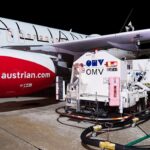
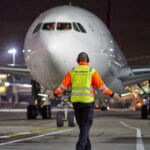
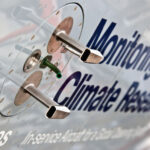


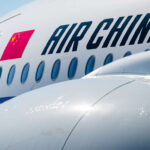
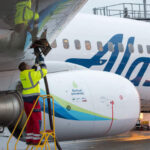
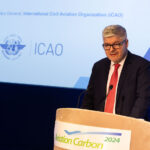
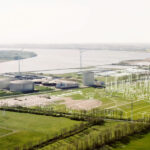
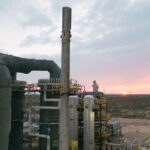

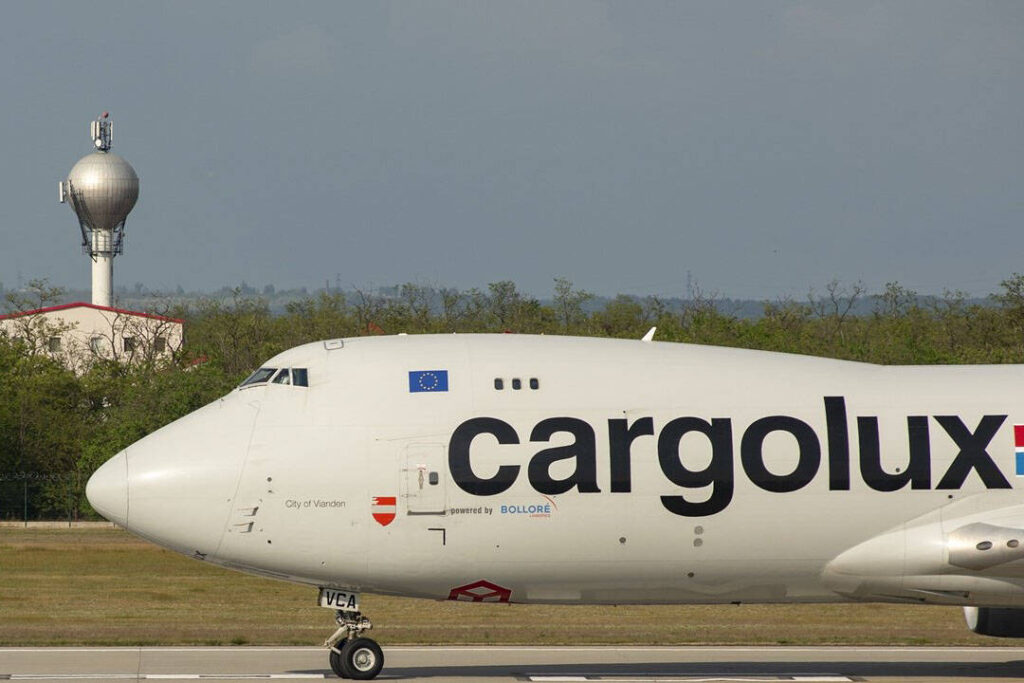

More News & Features
Progress on decarbonising the airline sector has been slow this year, says IATA chief
EASA releases status report on Europe’s SAF production and readiness to meet blending targets
New study highlights differing strategies and barriers to decarbonising aviation in UK and Europe
New partnerships formed to drive e-SAF production in Nordic markets
IAG continues to go big on e-SAF as it inks 10-year offtake agreement with Infinium
US on the pathway to achieving its 2030 SAF Grand Challenge target, says DOE report